On October 5th, 2023, the final conference of the DEFEN-CE project, “Social Dialogue in Defence of Vulnerable Groups in Post-COVID-19 Labour Markets,” took place in Brussels. The event commenced with an opening address by Minna van Gerven, representing the University of Helsinki. Within the introductory remarks, Minna van Gerven provided a comprehensive overview of the DEFEN-CE project’s journey. Throughout its course, the project has illuminated the vulnerabilities that have impacted diverse groups, underlining the instrumental role of social dialogue. Moreover, the project has highlighted the critical policies that have come into effect at both European and national levels in response to the challenges posed by the COVID-19 pandemic. As a result, this research has emerged as an invaluable resource, providing insight into the pandemic’s profound implications for policy development and social dialogue. Consequently, the DEFEN-CE project not only functions as a guiding compass in navigating the persisting challenges but also as a cornerstone for constructing a more resilient and well-prepared future.
Keynote speaker Ragnar Horn, Ambassador of the European Union and representative from DG Employment at the European Commission, brought to the audience a wealth of expertise in areas such as the European Semester, social policies, long-term care, and the protection of vulnerable groups. Horn emphasized the gravity of the challenges confronting Europe, exacerbated by external events like the Russian conflict in Ukraine. These challenges have led to rising inflation, energy crises, and increased living costs, disproportionately affecting vulnerable groups. Furthermore, he spotlighted often-overlooked long-term structural challenges, including the green transition, an aging population, and decreasing growth rates. Horn echoed the goals of the European Pillar of Social Rights for employment, training, and poverty reduction by 2030 and the recent First Employment Social Rights Forum’s role in advancing social Europe. His call for unity and collaboration in these challenging times resonated with the audience.
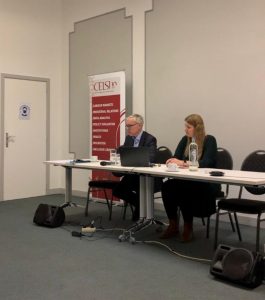
Ragnar Horn, Ambassador of the European Union and representative from DG Employment at the European Commission, on screen as keynote speaker.
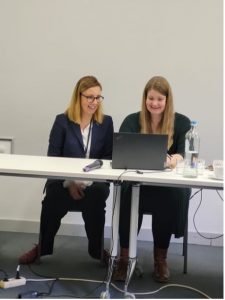
Research directors Minna van Gerven (University of Helsinki) right, and Marta Kahancová (CELSI)
In the session “Covid-19 Measures to Protect Vulnerable Groups in the Labor Market in the EU,” chaired by Monika Martišková, the DEFEN-CE project offered a deep dive into the protection of vulnerable groups. Chaitawat Boonjubun and Barbora Holubová presented EU-level findings, where data was gathered from stakeholder interviews in 12 countries, focusing on 5 pairs of similar welfare state and social dialogue systems. Their research revealed that vulnerability is not solely about exposure to specific risks but is also shaped by factors such as age, gender, and ethnicity. The COVID-19 pandemic intensified the vulnerability of these groups, with EU-level policies primarily concentrated on general labor market and business protection. National governments and social partners played a crucial role in shaping policies, highlighting the complex power dynamics in the labor market and the significance of social dialogue in safeguarding vulnerable workers’ rights.
Mark Bergfeld from UNI Europa provided a thought-provoking presentation that shed light on macro issues that surfaced during the COVID-19 crisis. His insights encompassed labor shortages, stagnant real wages, the balance of power between trade unions and employers, and the evolving definition of essential workers. He emphasized the renewed vigor in the trade union movement and the role of labor shortages in driving wage growth, particularly in traditionally low-wage sectors. This session illuminated the multifaceted challenges and opportunities emerging in the wake of the pandemic, emphasizing the need for a comprehensive and inclusive approach to protect vulnerable workers and uphold their rights.
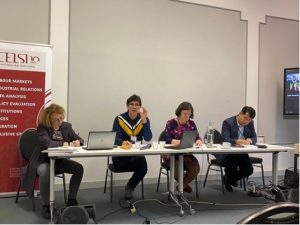
Mark Bergfeld shedding light on macro issues that surfaced during the COVID-19 crisis. From the left – Barbora Holubova (CELSI), Mark Bergfeld (UNI Europa), Monika Martiskova (CELSI), and Chaitawat Boonjubun (University of Helsinki).
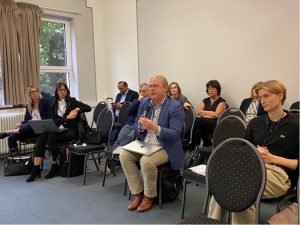
Rense Nieuwenhuis (Stockholm University) querying the panel.
During the conference session, Marta Kahancová discussed the role of social dialogue in protecting vulnerable groups during the COVID-19 crisis across Europe. She highlighted the diversity in social dialogue systems and how different countries responded to the pandemic. Marta emphasized the stability of social dialogue, especially in Central and Eastern European countries, and discussed the use of personal connections to access the government for collaboration. The Q&A session further explored the power and mobilization of trade unions during the crisis and their relevance in an evolving labor market. Marta stressed the need for unions to adapt to meet the diverse needs of various worker groups and how diversification of union activities could be a way forward. The conference provided valuable insights into the lessons learned from the pandemic’s impact on social dialogue across Europe.
Comprehensive publications rooted in the findings of the DEFEN-CE project are on the horizon, promising a deeper exploration of its research outcomes. All current and future DEFEN-CE reports and policy briefs can be found on the project webpage. To stay up-to-date with the latest developments, be sure to follow the DEFEN-CE project’s official Twitter account.
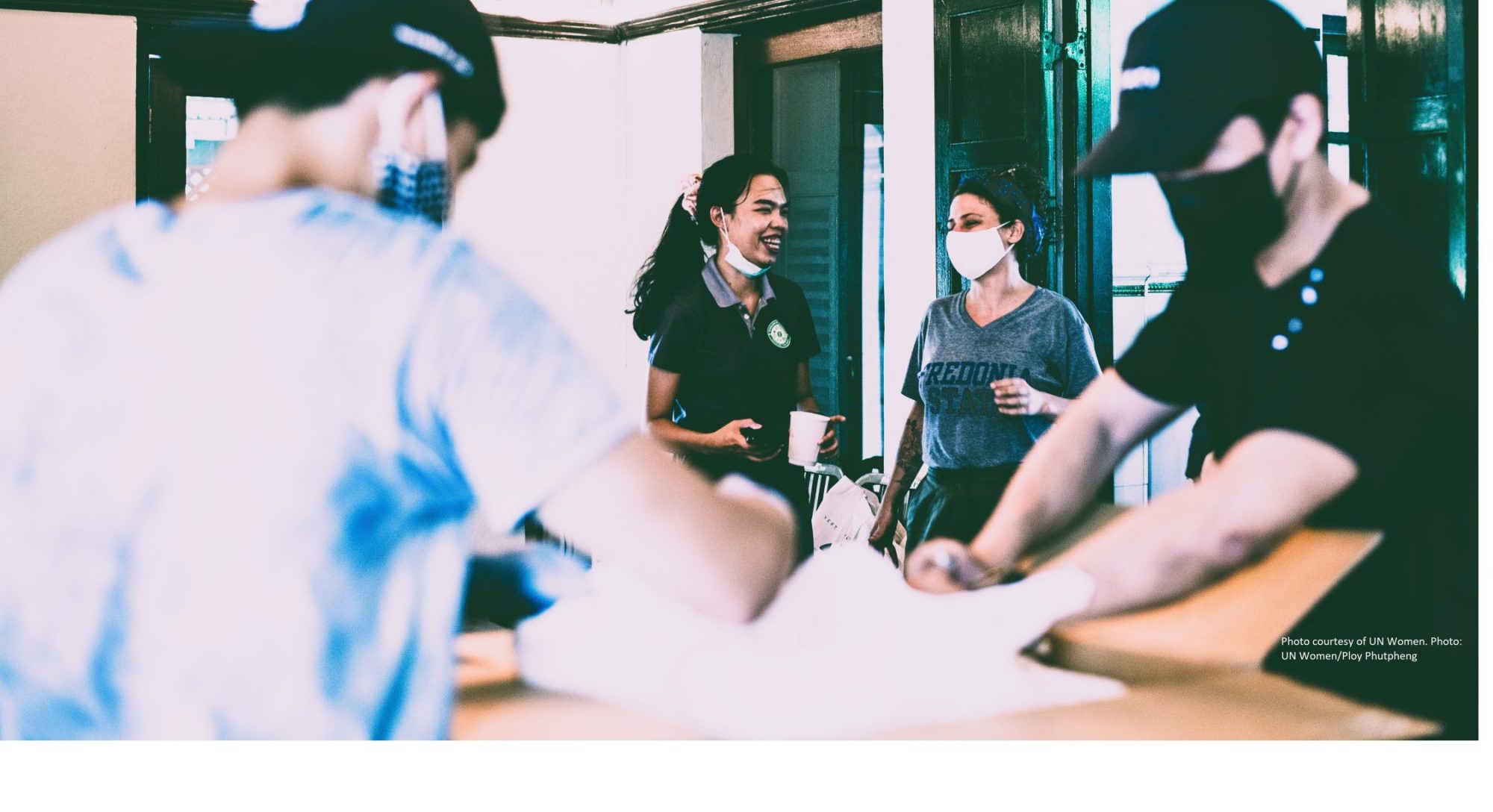
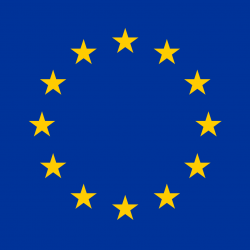
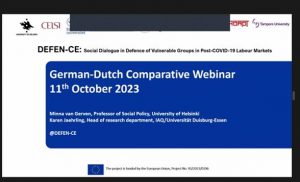
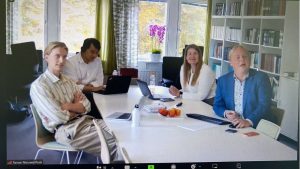


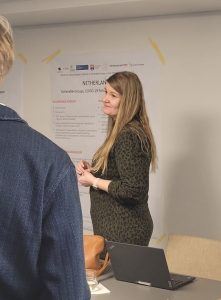
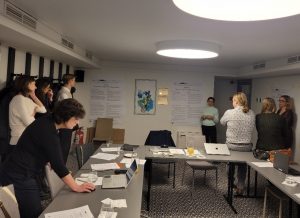
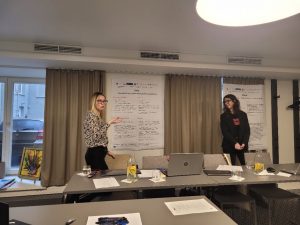
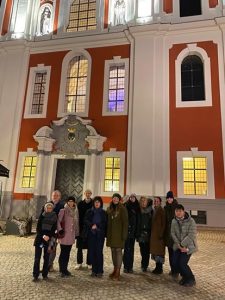

 Photos by Minna van Gerven
Photos by Minna van Gerven